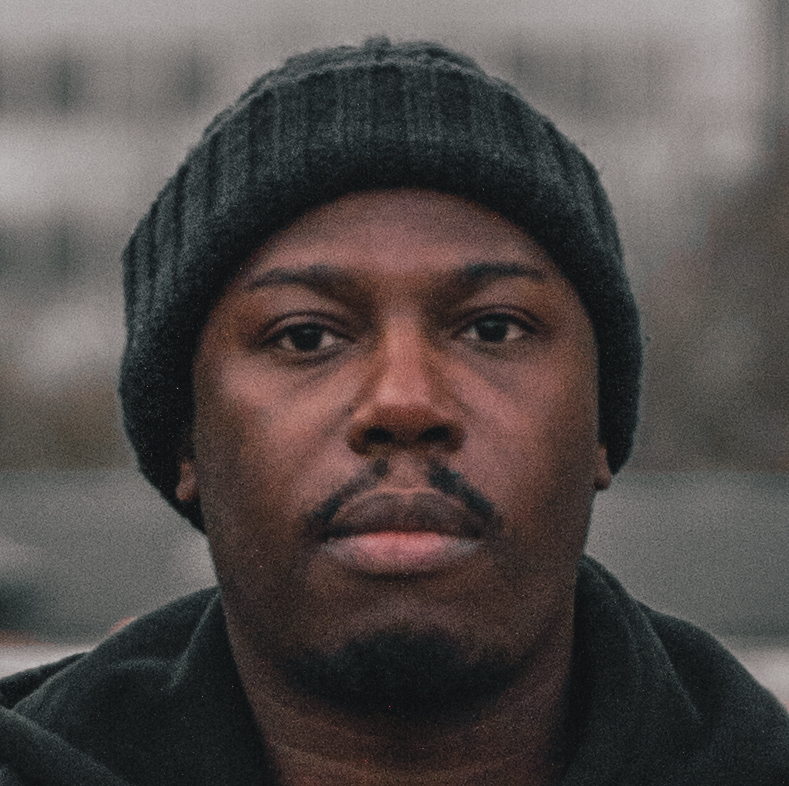The pandemic has proven a great opportunity for musicians to challenge themselves outside of performing on stage. At a time when many have been hyping on the newfound studio inspiration that comes with isolation, cultural critics have gained a new understanding of the many ways quarantine can actually help to create timeless music.
Davy Denke is one of those emerging musicians whose transcultural sensibilities help to examine the way social relationships are evolving in a world of solitude. Born in Paris to Togolese parents, Davy Denke speaks often of the cultural awakening that came with the discovery of all kinds of musical influences, from British rock to African pop, to blues and hip hop.
His debut EP was rougher around the edges. It came after a painful breakup, but his latest record, Distant Dream, draws on more experimental electronic phrasings, relying on the honesty and vulnerability that come with the quest for a new personal ethos.
On your new single Distant Dream, you reference the fire coming, which reminds us of Baldwin’s The Fire Next Time. Can you tell us about your lived experiences that led to that song?
Growing up in France, I experienced the more institutional side of racism. This being from the choice of education that was available to me early on, all the way to the work opportunities I could get. I have also experienced a more physical type of racism. This occurred during my stays in both Europe and the US. My most dire memory was when I was sent to the hospital for reconstructive facial surgery, following a physical attack by four racist men in Poland.
Distant Dream is about the duality of Black dissent. On the one hand, as a Black woman or man, you feel the emotional urge to rebel against your surrounding institutions, out of frustration or desperation. On the other hand, you know that patience and focusing on healing is more likely to bring the right type of change for our society.
I think James Baldwin’s life and work embody that duality perfectly, navigating between intellectual debate while highlighting the potential consequences of the continuous oppression of Black voices.
Staying alive is a theme in some of your songs, including in the single Transit from 2020. Can you tell us about your creative routine for survival during this pandemic where live performances are mostly prohibited?
The pandemic has completely changed my approach to creating music. I usually approach music production from a live perspective. It’s my guitar and sometimes my drummer to find both instrumentals and lyrics.
But for the Distant Dream EP, I had to learn how to produce from my apartment, in isolation. I now spend time thinking about sound design, sampling and creating an atmosphere to create a canvas first and then I switch my focus to the lyrics. I then go back and forth, as I’m writing, to finalize the song. It’s quite ironic because producing and songwriting during lockdowns gives me complete freedom over both the content and the aesthetic of the music I create. This is surprisingly liberating!
I still have hopes of performing these songs live and am looking forward to translating these productions into a stage environment.
Between France, Togo, the US, the UK, Poland, Denmark and the other places you have lived as a nomad, how has your transcultural upbringing informed your approach to making music?
My love for music is inextricably linked to my travels, as I fell in love with it a little bit more each time I moved. I feel my songs are like traveling logs of an intimate diary. I use the personal, geographical, socio-political situations I experienced in different countries as a foundation on which to build emotional stories.
Sonically speaking, my nomadic life keeps shaping the musical influences and melodies I’m inspired by. I love West African rhythms and melodies, British guitar music and songwriting and poetry, African American soulful voices… All of these inform my choices as an artist and constitute my palette. I also started sampling sounds and situations from my travels to help create atmospheres, unique to where I live when composing.
